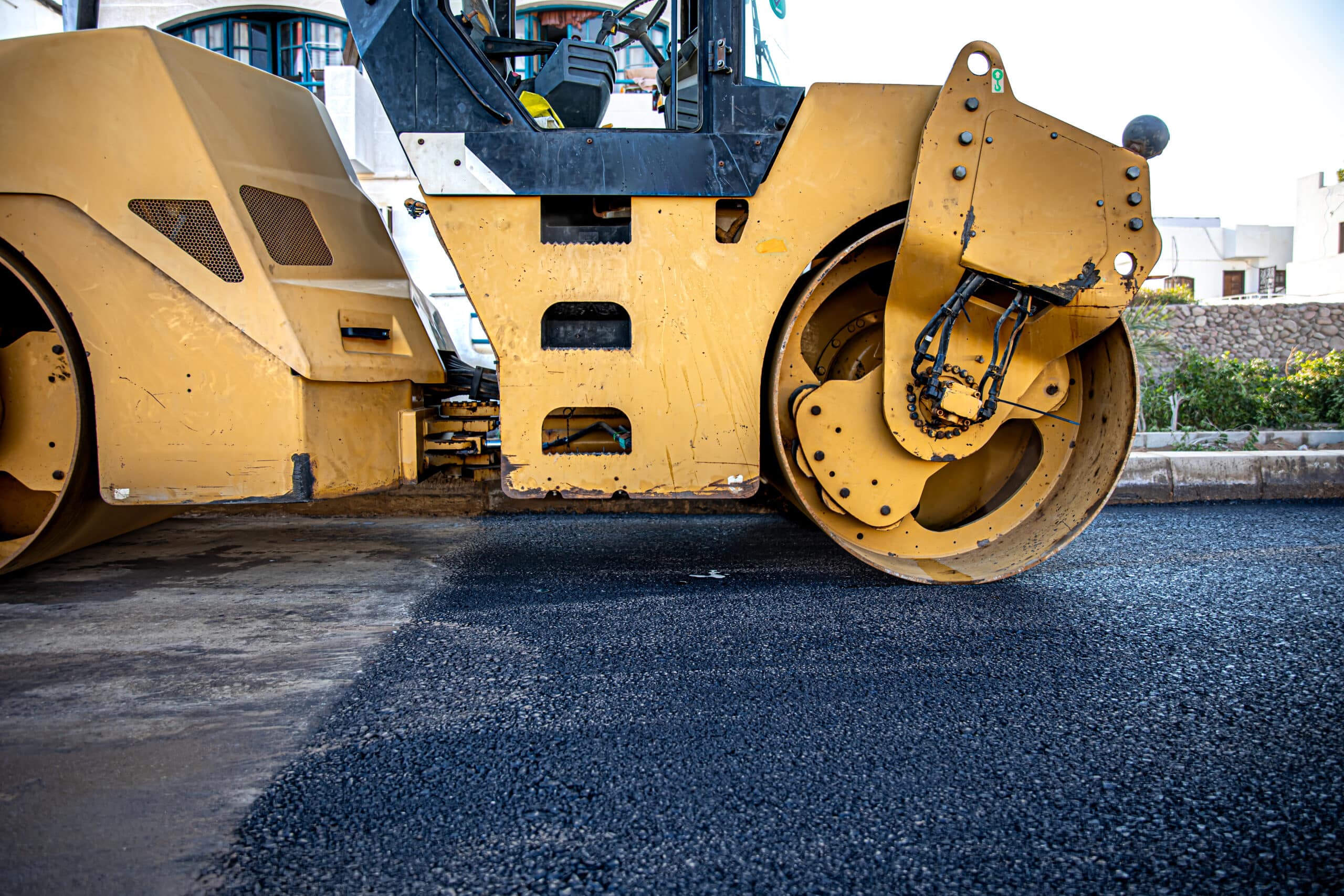Bitumen or asphalt? Contrary to common belief, they are not the same thing – though the terms are often used interchangeably.
Even when you perform an online search to understand the difference between the two, many results inaccurately claim that they are the same thing. They’re not!
So, what is the difference between bitumen and asphalt?
Asphalt
When many people use the term “bitumen”, what they are actually referring to is asphalt. Asphalt is a man-made composite mix of aggregate (crushed rock, stones, and gravel), sand, and bitumen. It is produced in a plant and is heated and dried. The resultant asphalt is a solid material that is applied to the road or other surface via a paving machine. It is applied to a specified thickness depending on the end purpose of the surface. It delivers a more durable, smoother, more flexible surface than a bitumen-sealed road and complies with engineering requirements for heavy vehicles, machinery, and cars.
Bitumen
Bitumen is the liquid binding agent that is used to hold asphalt together. It is often confused with tar, which is also a binding agent produced from wood, coal, peat, or petroleum. Tar, however, when mixed with aggregate, produces tarmac.
Bitumen + Aggregate Material = Asphalt
Tar + Aggregate Material = Tarmac
A by-product of petroleum (but also derivable from pitch lakes and oil sands), bitumen is usually created through the distillation of crude oil. The lighter liquid content is removed from the oil, leaving behind a thick, sticky substance. It is resistant to damage from water and oil and is very strongly adhesive. It is the perfect binder for asphalt, which is used for surfacing driveways, roads, and carparks.
Bitumen can also be used alone as a binder to seal roads – a layer of bitumen is sprayed and then covered with an aggregate material. This adheres to and seals the underlying road layers.
There are different types of bitumen:
- Penetration Grade – standard bitumen used for paving and road construction.
- Oxidised Grades – refined and further treated with processed air for a harder mix for applications such as pipe coating and roofing.
- Cut-Back – volatile oil is added to the bitumen and evaporated after application. Used for priming unbound road bases and adhesion between asphalt and base material.
- Emulsion – water-based and eco-friendly, this is used in wet weather and for soil stabilisation.
- Polymer Modified – has added plastic or rubber to provide varied strength and elastic properties. Especially designed, it is used in heavy-duty traffic roads and roofing to withstand weather extremes.
Which Do You Use?
Bitumen is used only as a sealant or binder for other materials, and only by commercial suppliers like Allroad Surfaces. Asphalt is used to surface (or resurface) any road, carpark, commercial space (e.g play area in a reserve or park) or driveway.
Bitumen spray seals offer a simple and cost-effective solution for surfacing, delivering a functional and flexible pavement to suit everything from streets to highways, carparks to subdivisions, driveways to bicycle paths, and more. A bitumen spray-sealed surface should last between seven and fifteen years (usage and environment-dependent) and periodic resealing with this method is important for maintenance and functionality.
Call Allroad Surfaces for a Quote
Have the recent rains impacted your area? Does your road or driveway require resealing?
Allroad Surfaces is a leading asphalt paving contractor in Southeast Queensland. We service the Sunshine Coast and areas including Peregian, Noosa, Gympie, and Caloundra. With more than 80 years of collective experience, our team proudly works with local councils, civil contractors, developers, and local residential clients for projects large and small.
We offer maintenance and repair work, as well as bitumen spray seals, and we work on:
- commercial spaces
- subdivisions
- carparks
- driveways
If you’re looking to fix your road or driveway, call Allroad Surfaces today for a 90-day obligation-free quote. Contact us here today – we look forward to hearing from you.

